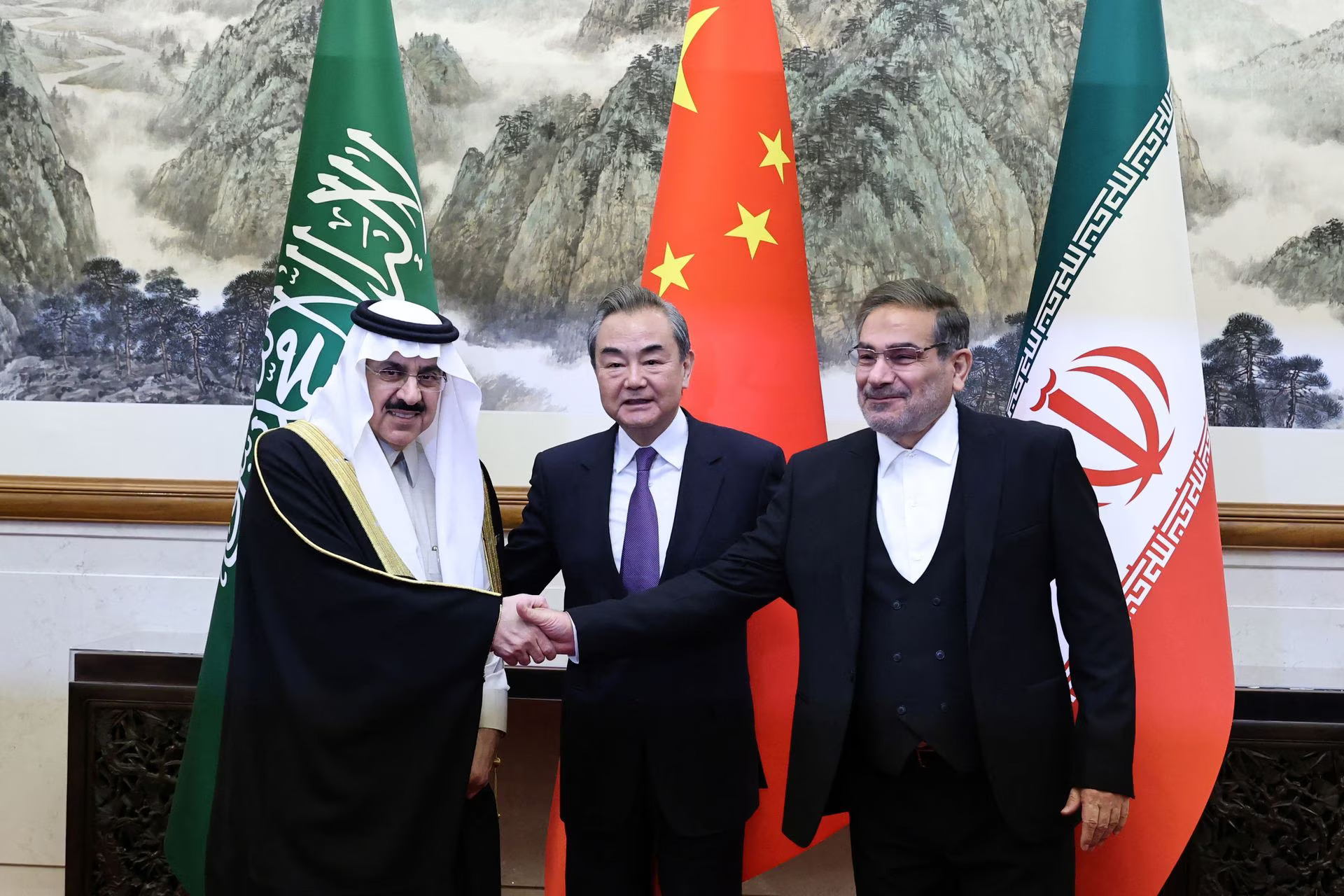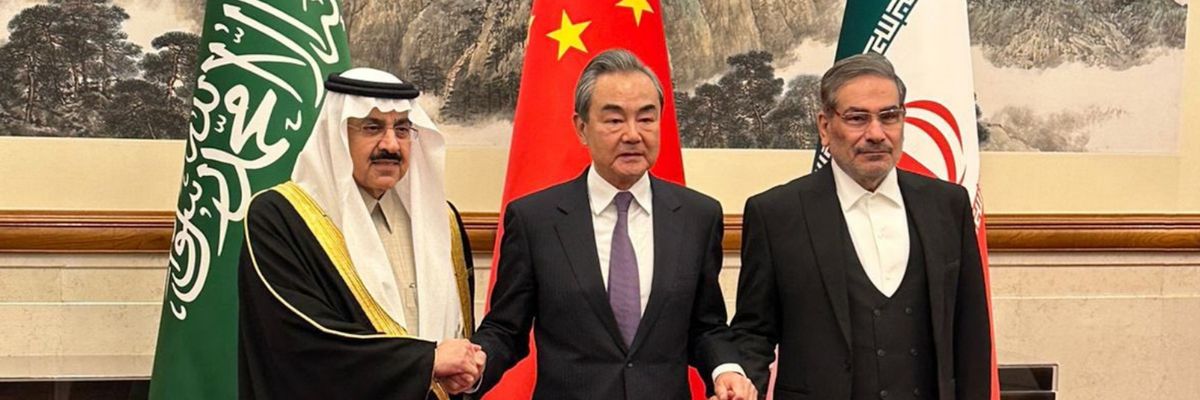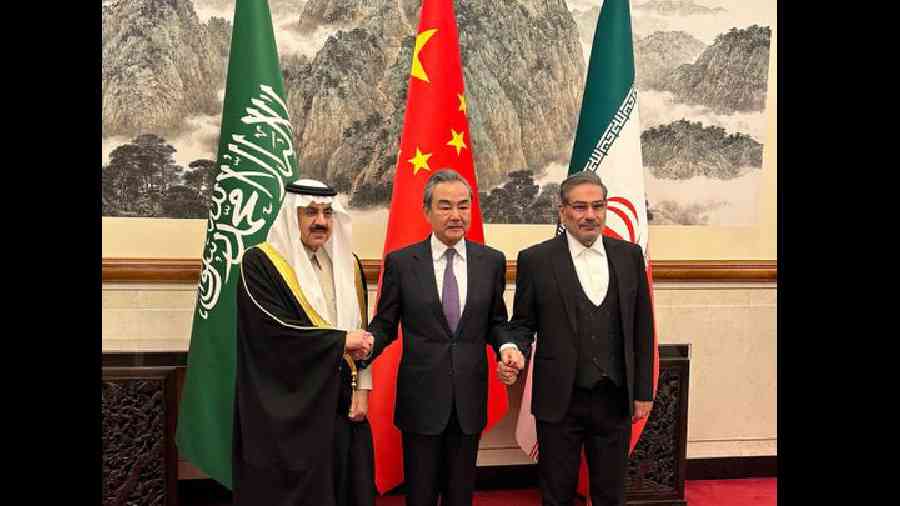Issued on: 15/03/2023 -
Text by: Bahar MAKOOI
An activist in Poland was convicted on Tuesday for helping a pregnant woman access abortion pills, as a legal case in the US attempts to ban access to medical abortion altogether. In countries where reproductive rights are already under threat, abortion pills can provide discreet access to safe terminations, but legal battles are blocking access to medicine.
Activist Justyna Wydrzynska was sentenced to eight months of community service on Tuesday, after Polish courts found her guilty of helping another woman to have an abortion.
Poland has some of Europe’s most restrictive abortion laws, with termination only allowed in cases of rape, incest or threat to the mother’s life or health.
Wydrzynska, who plans to appeal the ruling, was arrested in April 2022 for providing abortion pills to a woman named Anna who was around 12-weeks pregnant and a suspected victim of domestic violence.
“It happened in 2020 during the Covid crisis,” says Mara Clarke, co-founder of Supporting Abortions for Everyone (SAFE), a group that defends access to abortions in Europe. “The postal service wasn’t working as normal and we didn’t know if the medicine would arrive in time to help this woman if it was delivered from overseas.”
The World Health Organization (WHO) advises that medical abortions – carried out using tablets sometimes called abortion pills – can be safely self-managed at home in the first 12 weeks of pregnancy.
“Anna’s husband initially prevented her from going to get an abortion in Germany, and then confiscated her abortion pills after reading her messages,” says Clarke. He reported Wydrzynska to the police, who then conducted a search of her home.
The maximum penalty in Poland for providing help to carry out an abortion is three years in prison – this makes Wydrzynska’s case “the first time in Europe that an activist has risked being sent to prison for helping a woman who wanted to have an abortion”, says Clarke.
“The fact that Justyna Wydrzynska risked three years in prison for responding to a plea for help from a woman and from a mother who was trying to escape an abusive relationship is a crime in itself against human rights and the right to bodily autonomy.”
‘No other way’
“I'm not feeling guilty at all,” Wydrzynska said in a press conference on Wednesday. “I know I did right. When your reproductive rights are restricted in a country like Poland… there was no other way to help than to share the pills.”
The WHO recommends the use of two abortion pills, Mifepristone and Misoprostol, as an accessible and affordable means of terminating a pregnancy which can be taken anywhere, for example at home instead of in a hospital. (Misoprostol can also be used as a stand-alone drug.)
In addition, the pills can also be taken without direct supervision from a medical supervisor. As such, global usage surged during the Covid pandemic when access to normal health procedures was disrupted.
In France, the US, medical abortions now account for more than 50 percent of total terminations. In the UK and India almost all terminations are now carried out using abortion pills.
The safety and relative ease of taking the medicine also makes abortion pills a useful asset to women seeking abortions in countries where the law limits access.
In Poland, where there are severe restrictions on procedural abortions conducted by medical practitioners, abortion pills offer a discreet lifeline to safe terminations. Typically, activist groups purchase the tablets to be sent by post from external countries via third-party organisations in order to avoid legal consequences.
In the US (which, along with Poland, is one of only four countries to make abortion legislation more restrictive in the past three decades) the national postal service has emerged as a key channel to providing abortion pills in states where legislation has blocked access to terminations.
‘Fear and intimidation’
Yet, this channel is now under new threat. On Wednesday, a US judge in Amarillo, Texas heard arguments to ban sales of Mifepristone across the country – even in states where abortion is legal. This would mean that activists could no longer purchase the drug in states with more permissive laws to send to women facing restrictions.
Anti-abortion activists who brought the case to federal court hope that banning the prescription drug would move the country closer to a total ban on the practice, especially as the presiding judge, Matthew Kacsmaryk, is a deeply conservative Christian with a personal history of opposition to abortion and a court record of favoring right-wing causes.
The United States Food and Drug Administration has urged the judge to reject the request on the grounds that it would force women to have unnecessary surgical abortions and greatly increasing wait times at already overburdened clinics.
"The public interest would be dramatically harmed by effectively withdrawing from the marketplace a safe and effective drug that has lawfully been on the market for 22 years," it said. Current US laws allow use of Mifepristone up to 10 weeks of pregnancy.
At the same time in Texas, another case has been brought by a man suing three women who he says helped his wife obtain abortion pills.
He alleges the three women texted his former partner information about Aid Access, a group that provides abortion medication by mail, and that one of the women dropped off the pills to his ex-wife.
It is the first such lawsuit to be brought in the US since the Supreme Court overturned laws enshrining abortion as a fundamental right.
As in Poland, the case is a “terrifying example of how anti-abortion extremists use the judicial system as an instrument of fear and intimidation”, says Irene Donadio spokesperson for the International Planned Parenthood Federation European Network.
‘I would have done the same’
In Poland, Anna, the pregnant woman Wydrzynska gave abortion pills to, was never able to take the medicine. Days after her husband confiscated the pills, she miscarried. Yet, in an open letter published on March 2 she wrote to Wydrzynska to express her thanks.
“It was an expression of humanity. Because in a situation where people who had a moral obligation, and in some cases a legal obligation, to help me stood up and washed their hands, only you gave me a hand.”
For Donadio, it is no surprise that abortion pills are at the heart of legal challenges against abortion on both sides of the Atlantic. The fact that they can be taken without medical supervision, and even be bought in pharmacies in many countries, makes them an unprecedented channel for female empowerment.
“Medical abortion is clearly the result of medical progress that can be used to emancipate women and to protect their health,” says Donadio. “It is revolutionary. That's why it's so disturbing for certain forces because it allows women control over their body, over reproduction, and over their life.”
As well as opposition, there is also support for access to the medicine. In the US, if the federal judge does rule for a temporary ban on Mifepristone, the FDA would likely immediately appeal it, on the basis of the drug's history and its own authority to regulate pharmaceuticals.
In Poland, politicians seem to be hearing the message. On March 6, Wydrzynska spoke in front of MPs from Poland’s centre-left party, Nowa Lewica, to defend her actions. The next day a law aiming to criminalise communicating information about abortion failed to pass after being rejected by a large majority in parliament.
Activists are also unlikely to drop the cause. When Wydrzynska has appeared in court in Warsaw dozens of women have gathered holding banners bearing the message: “I would have done the same as Justyna”.
This article was adapted from the original in French.
Issued on: 15/03/2023
Amarillo (United States) (AFP) – US abortion opponents are hoping for a national ban on a widely used abortion pill as their lawsuit against government drug regulators was argued Wednesday before a Texas judge believed to be sympathetic to their cause.
Galvanized after the US Supreme Court ended the nationwide right to abortion last June, anti-abortion forces are now targeting the prescription drug mifepristone in their campaign to win a total ban on the practice.
The suit against the US Food and Drug Administration (FDA) takes aim at a pill involved in 53 percent of all abortions in the United States, or more than half a million every year.
While the FDA has never been challenged like this before on its approval of a drug that has proven safe and effective, the plaintiffs, a coalition of anti-abortion groups, believe they can win a national freeze on distribution of mifepristone.
Presiding over the case in federal court in Amarillo, Texas will be Judge Matthew Kacsmaryk, a conservative Christian with a personal history of opposition to abortion and a court record of favoring right-wing causes.
The case landed in his court via what critics call "judge-shopping," in which plaintiffs take legal action in a district where the judge has a history of rulings that support their case.
It is not clear when Kacsmaryk will make his decisions, but if he rules in favor of the plaintiffs, the US government is widely expected to appeal.
A small group of protesters gathered outside the courthouse Wednesday, carrying signs bearing slogans such as, "Not your uterus, not your decision" and "Defend medication abortion."
Lindsay London, a 41-year-old nurse, said the case was "100 percent ideologically based."
"If they were concerned about people's health there would be many other actions they would be taking. It's ideological, not based in science."
Record of safety
One component of a two-drug regimen used for medication abortion, mifepristone can be used in the United States through the first 10 weeks of pregnancy.
It has a long safety record, and the FDA estimates 5.6 million Americans have used it to terminate pregnancies since it was approved.
But the Alliance Defending Freedom, a conservative Christian advocacy group, sued the FDA, saying the approval of mifepristone "disavow(ed)" science, "ignored" potential health impacts and "disregarded" the complications that can arise with its use.
"The FDA failed America's women and girls when it chose politics over science and approved chemical abortion drugs for use in the United States," they said.
The FDA has urged the judge to reject the request.
"The public interest would be dramatically harmed by effectively withdrawing from the marketplace a safe and effective drug that has lawfully been on the market for 22 years," it said.
Already banned in some states
Currently, some 15 states have laws restricting access to mifepristone by requiring a physician provide it, according to the Guttmacher Institute, a reproductive health policy and research group.
Abortion care has halted in another 13 states after the Supreme Court overturned the long-established constitutional right last June.
The Texas suit seeks to block mifepristone nationally by overturning the FDA's approval of the drug, and asks Kacsmaryk to first suspend the approval via injunction -- an effective ban -- while the lawsuit proceeds through his court.
Abortion rights groups say a ruling blocking mifepristone would be as earth-shaking as the Supreme Court's ruling last year.
"Access to medication abortion would end across the country -- even in those states where abortion rights are protected," the Center for Reproductive Rights said.
If Kacsmaryk does rule for a temporary ban on mifepristone, the FDA would likely immediately appeal it, on the basis of the drug's history and its own authority to regulate pharmaceuticals.
But abortion rights advocates were preparing for the worst.
"It seems unbelievable that a lone judge in Texas could make a ruling that would impact a product that has been FDA approved and safely marketed for more than two decades," said Elisa Wells, co-founder of Plan C, which helps people access medical abortions.
© 2023 AFP











